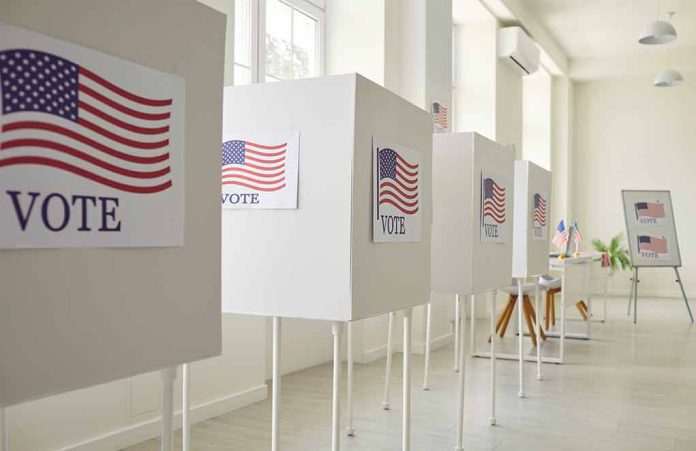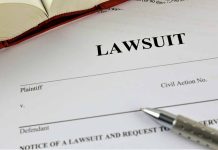
Nevada’s Supreme Court has ruled that the Green Party will not appear on the state’s 2024 presidential election ballot, citing a technicality in the party’s petition process.
At a Glance
- The Nevada Supreme Court voted 5-2 to remove the Green Party from the 2024 ballot.
- The decision was based on incorrect affidavit language recommended by the Secretary of State’s office.
- The Green Party submitted nearly triple the required signatures, but all were invalidated.
- The ruling ensures only one third-party candidate on Nevada’s presidential ballot.
Court Decision Sparks Controversy
In a controversial 5-2 decision, the Nevada Supreme Court has ruled that the Green Party will not appear on the state’s 2024 election ballot, making party candidate Jill Stein ineligible for the spot. The ruling hinges on a technicality involving incorrect affidavit language used in the party’s petition process, despite the fact that the language was recommended by the Nevada Secretary of State’s office.
The Green Party had submitted an impressive 29,500 signatures, nearly three times the required minimum. However, all these signatures were invalidated due to the affidavit issue. This decision has effectively eliminated a potential alternative for voters in Nevada, leaving only one third-party candidate on the presidential ballot.
The #Nevada Supreme Court kicks @DrJillStein & @ButchWare off the state's ballot because of a petition-form error… that was made by the Nevada Secretary of State.#VoteGreen2024 @TeamJillSteinhttps://t.co/8hOGNTIuu4
— Green Party US 🌻 (@GreenPartyUS) September 9, 2024
Democratic Party’s Role and Reactions
The challenge to the Green Party’s ballot access was brought by the Nevada State Democratic Party. This move aligns with a broader strategy by Democrats in multiple states to keep the Green Party off ballots, potentially to avoid splitting the left-leaning vote. Hilary Barrett, executive director of the Nevada Democratic Party, hailed the ruling as a “victory for Nevada voters,” asserting that it ensures all parties follow the same rules.
However, this perspective is not universally shared. Critics argue that the decision undermines democratic principles by limiting voter choice. The ruling has raised questions about the fairness of the electoral process and the role of established parties in shaping ballot access.
Green Party Response and Future Plans
Jill Stein, the Green Party’s presidential candidate, has not taken this decision lightly. She described the ruling as a “slap in the face” to voters, highlighting the frustration felt by many third-party supporters. The Green Party is now considering an appeal to the United States Supreme Court, demonstrating their commitment to fighting for ballot access.
“This is extremely anti-democratic,” Stein argued. She asserted that voters “deserve choices. That’s what democracy is supposed to be about, and this is another case of the anti-democratic party if it were labeled correctly, slapping down voters.”
The Green Party’s struggle for ballot access in Nevada is part of a larger national pattern. Stein has pointed out that similar challenges are being faced in other states, suggesting a coordinated effort to limit third-party participation in the upcoming election. This situation raises important questions about the health of American democracy and the ability of alternative voices to participate in the electoral process.
Sources
- Green Party candidate Jill Stein discusses getting removed from Nevada’s ballot
- Green Party ineligible, Nevada Supreme Court decides
- Green Party will not appear on Nevada presidential ballot, state Supreme Court rules
- Supreme Court orders Green Party nominee removed from Nevada ballot

















